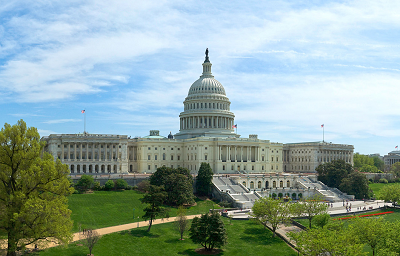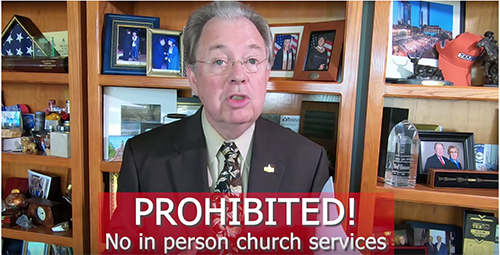The Balanced Budget Amendment and the Debt Ceiling
 There has been a lot of discussion lately about Congress attempting to pass a Balanced Budget Amendment (BBA). In light of the incredible deficits run up by the Obama administration, and in particular, the speed at which these deficits have manifested themselves, there has been a strong push by some Senators and Representatives to pass a BBA resolution. Senators John Cornyn, Orrin Hatch, Mike Lee, Pat Toomey and others have been pursuing this idea for some time.
There has been a lot of discussion lately about Congress attempting to pass a Balanced Budget Amendment (BBA). In light of the incredible deficits run up by the Obama administration, and in particular, the speed at which these deficits have manifested themselves, there has been a strong push by some Senators and Representatives to pass a BBA resolution. Senators John Cornyn, Orrin Hatch, Mike Lee, Pat Toomey and others have been pursuing this idea for some time.
For many reasons, stated below, I believe that the time is right to pass a Balanced Budget Amendment in the United States. It will be tough to do, as many Democrats see unlimited deficit spending as their ticket to re-election, and it does require a two thirds vote in both Houses of Congress.
What are the key elements of a BBA?
A BBA would essentially require that the federal government balance its budget on an annual basis, and no longer continue the current practice of deficit spending. The objective would be twofold; to balance annual government revenues with annual expenditures (taking into account unexpected and unforeseen events that might occur to prevent that in any given year) and to eventually eliminate the national debt, which now stands at about $4.3 Trillion.
A number of ideas have been floated as to the key provisions of a BBA. I have enumerated a number of them here, some of which include my own thoughts and proposals:
- Spending to be limited to no more than 18-20% of the nations nominal GDP (not real GDP).
- The president must submit a balanced budget to Congress, starting with the 2013 fiscal year budget.
- It would take a two thirds vote of both Houses of Congress to pass any tax increases.
- A mandatory maximum tax as a percentage of one’s earnings must be included. Assuming the Congress was to pass a tax increase under the two thirds rule, no person could be taxed at more than 50% of their total income.
- It would take a national catastrophe or a major war in which the USA was directly threatened to allow for any deficit spending. Under these circumstances, it would still take a three fifths vote to pass a bill to approve of deficit spending.
- Spending estimates would be determined for an entire year, with interim deficits throughout the year being permissible.
- Any deficit remaining at the end of a given year would result in a reduction of the following year’s budget.
I think point #4 is a key point that has been absent from the discussion so far.
What are the major objections to a BBA?
There are a number of economists, legal scholars and others who believe that the BBA is unworkable, with Judge Robert Bork being prominent among the objectors.
Some of the key objections are:
- A BBA will result in tax increases to balance the budget.
- What happens if the Congress can’t agree among the various factions on the construction of the annual budget?
- Enforcement of the various provisions of the BBA would be very difficult.
- If a BBA were to be enforced by the courts, it would restructure the balance of power among the branches of government and could empower unelected judges to raise taxes or cut spending — fundamental policy decisions that judges are ill-equipped to make.
- If the BBA provisions were to be enforced by the President, it would also restructure the balance of power between the branches of government.
These are valid objections but can be overcome by carefully wording the Amendment resolution. The two thirds vote to increase taxes should address the tax increase concern. The arguments about enforcement can be made about much of today’s serious budget questions:
- What happens if Congress doesn’t raise the Debt Limit?
- What rules apply as to which government bills will be paid or not paid under an imposed Debt Limit ceiling?
- What happens if Congress makes no appropriations in a given year and does not agree on a Continuing Resolution?
- Which rules determine the extent of a government shutdown when there is an impasse between Congress and the President?
There will always be enforcement questions about serious Constitutional issues.
What are the main reasons for Passing a BBA Resolution?
- The strong likelihood that Barack Obama will be re-elected in 2012, with his socialist spending proclivities now almost totally unchecked.
- The preponderance of ignorance within the American electorate which often results in the election of public officials whose principal qualification for public office is their likeability and personality.
- The strong likelihood that Democrats and labor unions will continue promise handouts and giveaways solely to keep getting re-elected, without any regard to the consequences.
- The very strong likelihood if we don’t pass the BBA that a financial catastrophe will befall the USA. This catastrophe that will most likely occur will be one of massive inflation of the likes of the Weimar Republic of Germany. This would be very bad for everyone and particularly terrible for the older generation who live on a fixed income.
- Not passing the BBA virtually guarantees the continued growth of the American government beyond all limits.
- Not passing the BBA this year, when the momentum is strongest and we have our best chance ever, means that the initiatives for a Constitutional Convention will continue to grow. If we can’t get a BBA amendment through the Congress, you can’t blame others for trying to solve the nation’s fiscal problems with the only other means given to them by the nation’s Founders.
Should Republicans Hold the Debt Ceiling Hostage to a Balanced Budget Amendment?
Given all of the arguments in favor of a Balanced Budget Amendment, I would suggest that now is probably the best chance in generations to pass this amendment. The Republican House has a mandate to cut spending, and there is probably no better way than to insist on passing the BBA first, prior to any effort to raise the Debt Ceiling in the spring of 2011.
House and Senate Republicans should work together in the time remaining to settle on a reasonable Balanced Budget Amendment, one that answers the objections of the most vocal critics. If that Amendment passes, then and only then should the House Republicans pass a small debt ceiling increase for a short period of time, giving the Administration and Congress a chance to come up with a reasonable 2012 Budget.









Comments
Facebook Comments
Make sure to check out the comments on Facebook.